In Northern California, property insurance costs are causing business owners to ask: What’s next?
In early January, just a couple weeks before his winery’s insurance was set to end, Eric Hays received an email from his broker. He opened it while at the modest business, called Chateau Davell, a few miles east of Placerville.
Hays would be able to renew the winery’s insurance, the email said. That is not a given for properties in the Sierra Nevada foothills, much of which is considered at high risk for wildfires.
Yet there was a catch: The cost of his property coverage, including for fire, was going to double to about $16,000 a year. What’s more, liquor and liability policies were going to cost him a few thousand dollars on top of that.
It felt like a gut punch. Hays had assumed his insurance for the business was already expensive enough. Never did he think it was going to rise so quickly in one year.
“What am I going to do?” he thought as he stared at his phone.
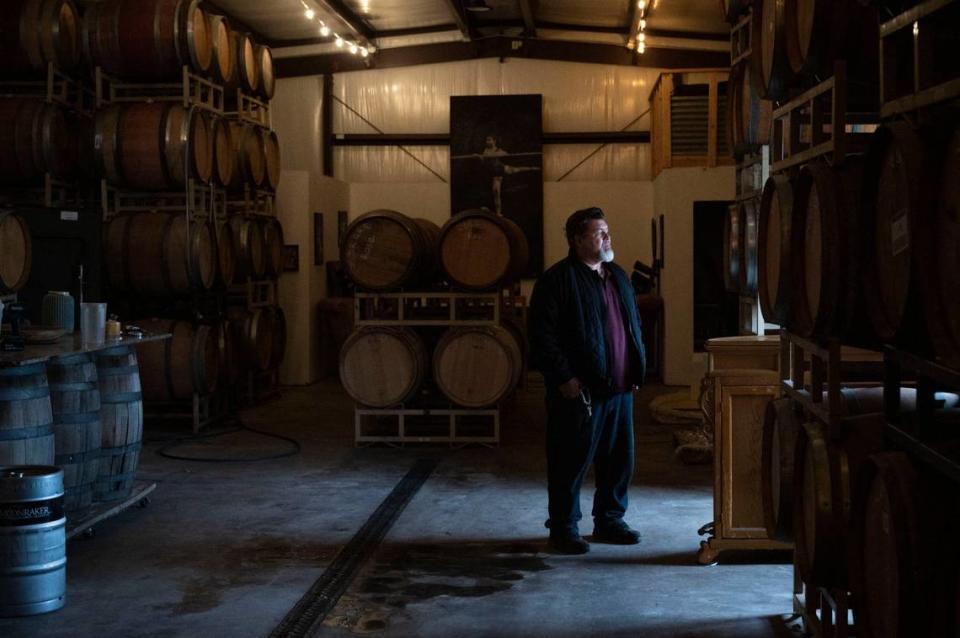
So much attention is put on the challenges California homeowners face with their insurance. But another group is also acutely affected by rising prices and fewer options: Small business owners.
That is particularly true in El Dorado County, known for its Apple Hill farms that attract swarms of people, particularly during the latter half of the year. Those and other businesses in the region, which stretches from El Dorado Hills to South Lake Tahoe, are also struggling with the year-to-year uncertainty of who will insure them and how much it will cost.
There’s the bed and breakfast that’s paying roughly $5,400 just for fire insurance. There’s the Christmas tree farm that was recently not renewed by a carrier it had for more than 30 years. There’s the orchard, which has had to rely on a patchwork of policies to cover several aspects of its business because companies have decided to insure less over the years.
“It’s kind of driving me nuts,” said Tom Heflin, 81, who co-founded the fruit farm, called Rainbow Orchards.
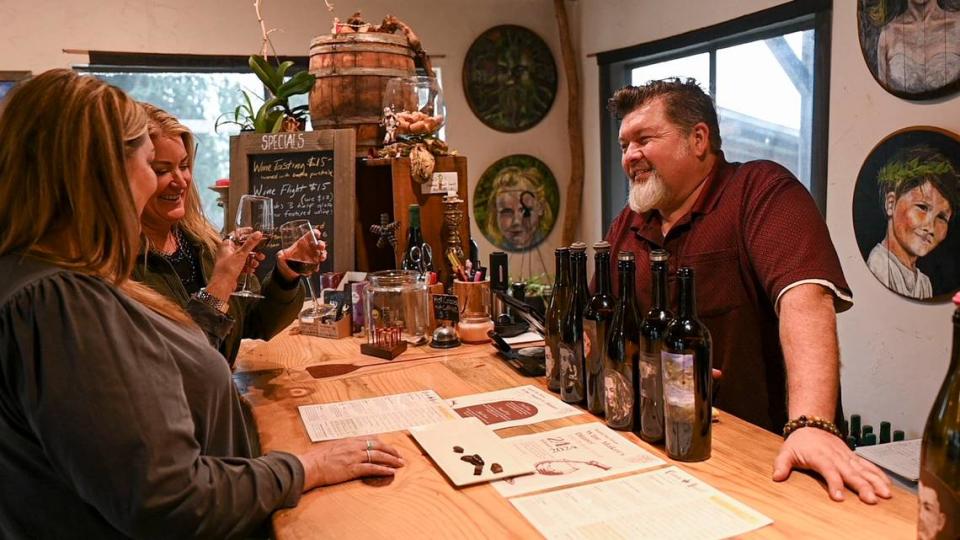
It’s also driving businesses in the region into financial hardship, said Laurel Brent-Bumb, CEO of the El Dorado County Chamber of Commerce.
“They’re doing everything they can not just to thrive, but to survive.”
And that’s what Hays fixated on when he saw the new insurance quote: the survival of his winery.
“Everything I have,” he said, “is invested in it.”
A family business
Hays, 51, worked as a restaurant and club manager before moving back to the area to be closer to his parents. He became an assistant winemaker at a local winery before opening Chateau Davell, about 15 years ago.
The business in Camino is only on a few acres. It includes a small vineyard, wine cellar and tasting room. He purchases grapes from other vineyards and wineries to supplement his own.
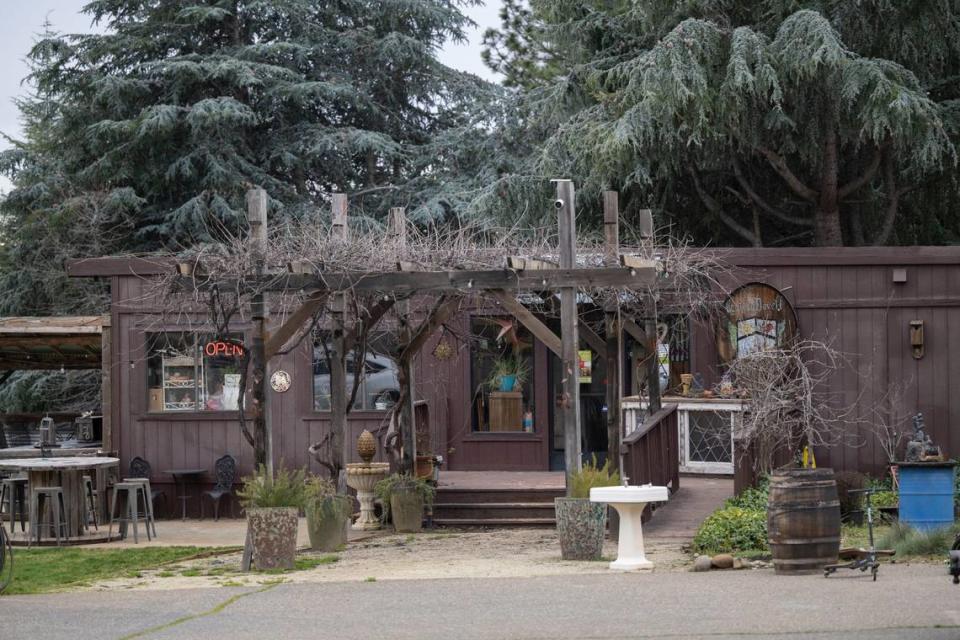
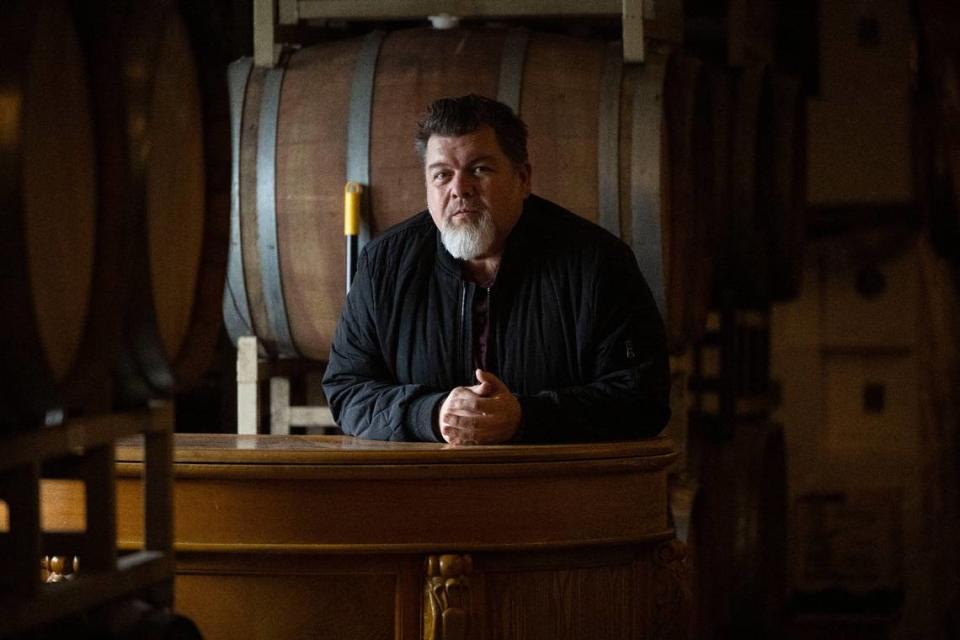
Davell is his mother’s name. Relatives are the inspiration behind the winery’s Zander Zinfandel, and Charlotte’s Cuvee. And bottles feature paintings from Hays, who said he has an art degree from Sacramento State.
His mother helps in the tasting room and with events and his wife leads the winery’s social media accounts, cooks and handles other tasks.
Although it is less known than Napa Valley, the area has rich soils and a climate that give it its own reputation as a wine growing region. Hays said the array of vegetation and trees nearby helps to create a healthy environment for his grapes.
They also put Chateau Davell at risk.
In 2021, the Caldor Fire torched more than 340 square miles of land in El Dorado and other neighboring counties. More than 1,000 homes and other buildings were destroyed and 21 people were injured.
Hays was not forced to evacuate but the fire still hurt the business. Smoky, toxic air damages grapes and puts a damper on outdoor events and visits to its tasting room. He said the majority of his business comes from selling directly to customers.
Insurance companies were already skittish about issuing policies to properties in the region. But that has only worsened since the fire, leaving people with fewer options and rising prices.
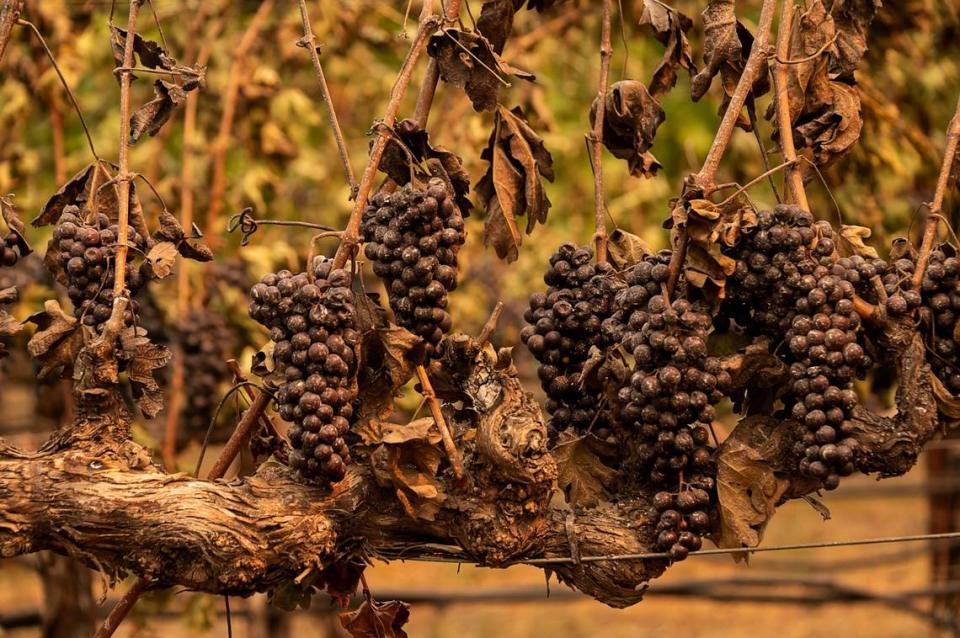
Higher insurance costs
In 2022, Hays said he paid roughly $1,700 for the winery’s insurance costs. By 2023, his bill was about $8,500 more.
After the email from his broker, Hays said he looked for other options. He wanted to just insure his mortgage, but his bank wouldn’t let him. He wanted to see what fire insurance would cost from the California FAIR Plan, a private insurance association established by the state. But he wasn’t eligible, because he had at least one offer. The FAIR Plan is supposed to be the insurer of last resort.
So, Hays decided to pay for the property policy offered by Covington Specialty Insurance Company, the only one his broker could find. Despite being more expensive, he has also seen his coverage decrease in recent years. His inventory of wine bottles and barrels is no longer insured. He hopes the metal cellar, built in 2022, will protect it from a fire.
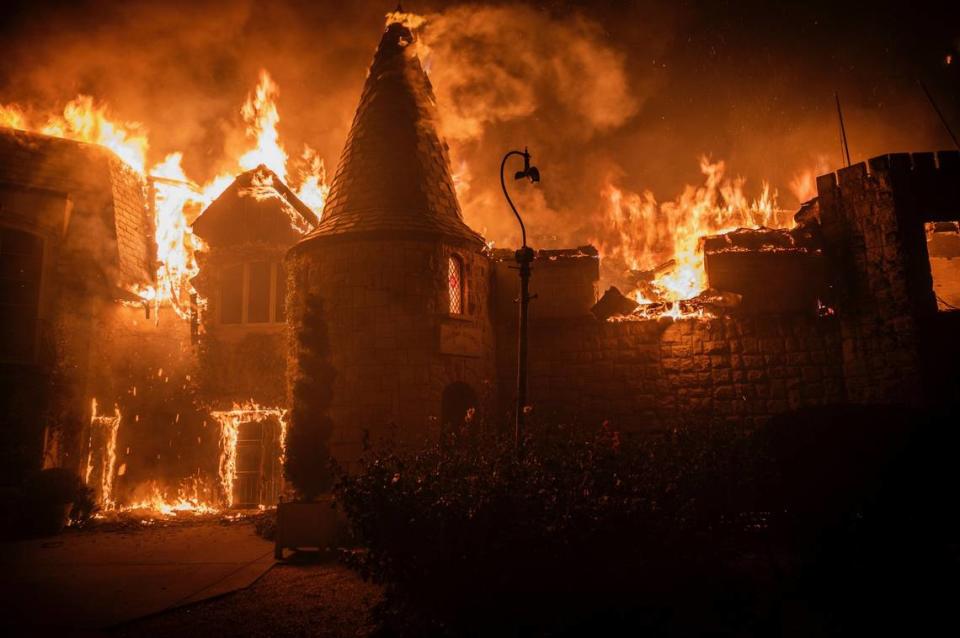
Jessica Walker, a communications official for RSUI Group, Inc., the parent company of Covington Specialty Insurance Company, declined to comment.
Mark Sektnan, a state government relations representative for the American Property Casualty Insurance Association, a national trade group, said insurers face the same issues with business owners in wildfire prone areas as they do with homeowners. There are higher costs to rebuild properties, an increasing severity of fires due to climate change, and many businesses are in areas with dense vegetation, Sektnan said.
“I think companies are starting to reflect that greater risk in their pricing.”
Hays’ total cost for insurance policies this year came out to $18,673.
What happens next?
Michael Ranalli, president of the El Dorado County Farm Bureau, is a former county supervisor who also owns a small vineyard. Ranalli worries about what will happen if prices keep going up for the county’s agricultural businesses.
“My overarching concern is the cost and the viability of continuing to farm,” Ranalli said. “And we need the state and the insurance providers to come together with a solution. And soon.”
In an email, Michael Soller, a Department of Insurance spokesman, agreed the challenges small business owners are facing with their premiums are “part of broader issues in the insurance market.” He encouraged them to contact the agency for help and said it was working to address the situation.
Insurance Commissioner Ricardo Lara has announced several regulatory changes he plans to roll out this year with the goal of persuading companies to reverse their recent decisions to pause or restrict new business in the state. He hopes it will lead to more options for customers and more affordable prices.
Any price reductions that come from those changes may not occur soon enough for Chateau Davell. The stakes are high: The business is the only source of income for Hays and his family.
In the short term, he is considering raising prices and holding more events to cover the increased cost. At the same time, his mind has wandered to what could happen next year: What will he do if the insurance price doubles again?

